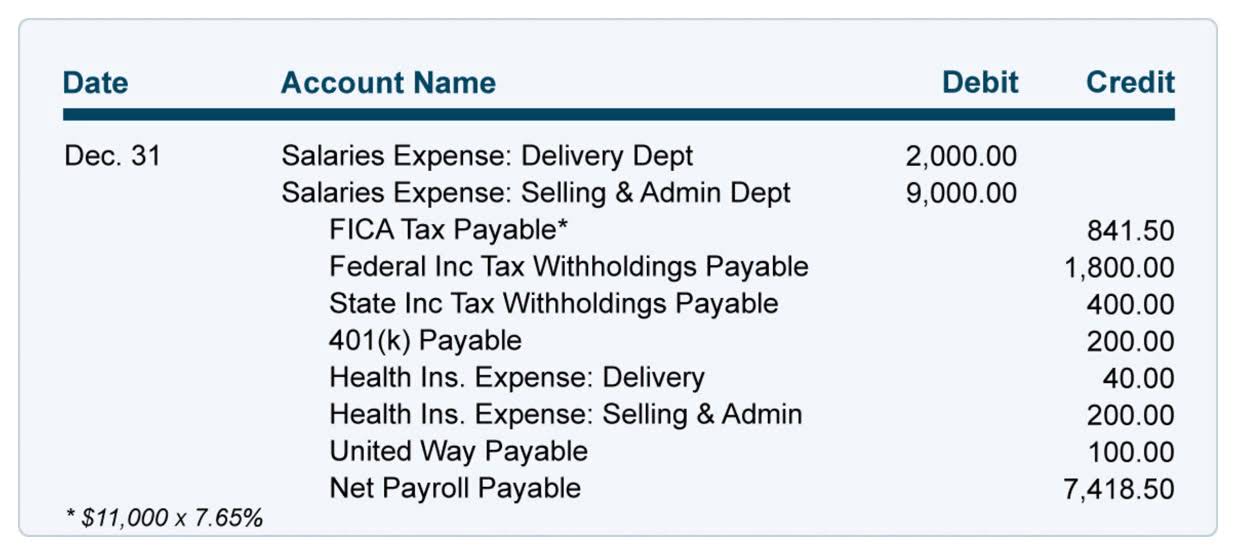
And when you commingle your personal and business finances, the following problems can arise. Once your business bank accounts are up and running, you should avoid mixing your personal and business finances. Our intuitive software automates the busywork with powerful tools and features designed to help you simplify your financial management and make informed business decisions.

Get clear on your tax obligations
For example, attorneys may be able to forgo trust accounts when storing client funds if the money is under a specified limit. The importance of diligence in trust accounting for lawyers cannot be overstated. Regular audits, trust accounting for lawyers accurate record-keeping, and adherence to ethical guidelines are paramount.
- You may want to consider this method if you’re planning to grow a large firm.
- If you’re a lawyer in Texas, check out our comprehensive guide, What You Need to Know About IOLTA Accounts in Texas.
- Understanding the benefits of trust accounting is a fundamental part of running a successful law firm, since having at least one client trust account is a common part of practicing law.
- The IRS accepts digital copies of receipts, and apps and online services make it relatively easy to scan and save them.
- In its most essential form, trust accounting is defined as bookkeeping for trust accounts in accordance with legal and ethical requirements.
- While there are a lot of factors to balance, here are the essentials for law firm accounting and bookkeeping success that you should get a handle on ASAP.
Master the art of recordkeeping
- If you haven’t completed this first step, check out our guide on starting a law firm for more in-depth guidance.
- IOLTA accounts are designed to keep client funds separate from your typical business or operating account—where you are allowed to accrue interest.
- This process involves comparing the law firm’s accounting records against bank statements to ensure they match and that all client funds are accurately accounted for.
- But regardless of how a firm holds a client’s money, the purpose of an attorney trust account is the same.
- Because InvoiceSherpa integrates with Clio, you can bring contacts and invoices from Clio directly into InvoiceSherpa.
Lawyers should promptly address trust accounting errors by conducting a thorough audit. You must track each trust independently, maintaining a thorough paper trail to ensure there’s never a question that the funds were used improperly. While this primarily applies to new law firms, ensuring that the basics are determined and set up correctly is critical. The lawyers and law staff work in LeanLaw while the accounting folks work in QuickBooks. One of the core functions of a trust is to ensure that there is no commingling between client funds and the lawyer’s funds. You would write a check out of the trust bank account and book it into the client sub-ledger.

Legal Industry Report

This is a significant mistake, akin to confusing a client’s checking account with your personal funds. By following these steps, you can effectively manage your lawyer trust account and stay in compliance with trust accounting regulations. This guide will provide an overview of trust accounting, talk about the challenges of remaining in compliance with trust account rules, and discuss various software tools that make trust accounting safer and easier. We highly recommend electronically managing all trust fund accounting to avoid the mistakes of hand-written records.
Legal billing software made easy.For Everyone
- Anything leftover after services are complete will go back to the client.
- Trust accounts are one of the most common areas where legal accounting mistakes are made.
- Assign trust and bank accounts for each client trust to track incoming and outgoing funds.
- Trust funds belong to the client unless they are earned or needed for client-related fees.
- Be sure to go through the steps mentioned above for setting up a new trust account.
If you’re a lawyer in Texas, check out our comprehensive guide, What You Need to Know About IOLTA Accounts in Texas. You can also use a law firm insights dashboard to identify what parts of your practice are most and least successful—so you can more thoughtfully allocate resources to stimulate future growth. As an aside, this interest is used to fund legal aid programs and other charitable activities.

Track every deposit and withdrawal in separate client ledgers, recording transactions as they occur. This meticulous record-keeping ensures compliance with trust accounting regulations and prepares you to handle any investigations into your law firm’s accounting practices, should errors arise. State bar associations typically require regular reconciliation of trust accounts, often on a monthly basis. This process involves comparing the law firm’s accounting records against bank statements to ensure they match and that all client funds are law firm chart of accounts accurately accounted for.
Clio helps ensure you’re including a client’s trust balance in their invoice
Some software platforms allow you to use accrual-based books for monthly management of the firm while also creating cash-basis statements for preparing tax returns. Look into the pros and cons of both methods for your firm, then be consistent going forward to ensure your records are accurate and easy to track. To ensure your firm’s financial statements are accurate, complete, and up-to-date, you need to use sound bookkeeping for attorneys. At its core, a trust account is a separate bank account where lawyers hold funds on behalf of their clients. The law firm does not own these funds; instead, they are in the firm’s care until they’re due for use in legal matters or disbursed to the client. The primary purpose of a trust account is to segregate client funds from ledger account the firm’s operating funds, ensuring clear lines are drawn between the two.
ABA (American Bar Association) rules of professional conduct outline the fiduciary responsibilities of the lawyer and they vary by state. What is essential is detailed recordkeeping and bank statements for every transaction and monthly reconciliations. This is what turns off many law firms from accepting client retainers — that, and the (up to now) complex bookkeeping that maintaining a trust account requires. While similar, a client trust account and an escrow account serve different purposes. An escrow account is generally used to hold funds or assets during transactions, like real estate deals, and is managed by a neutral third party. In contrast, a client trust account is specifically for holding and managing client funds related to legal services.

